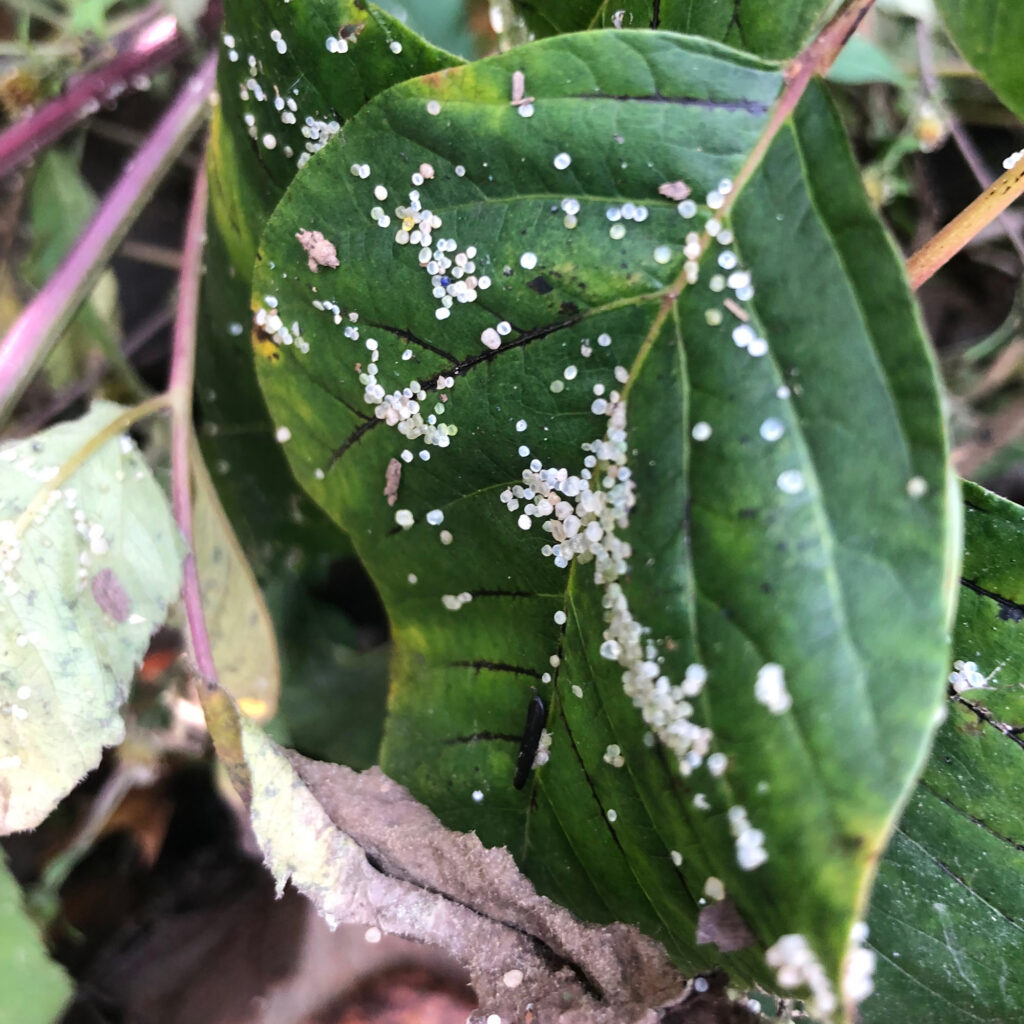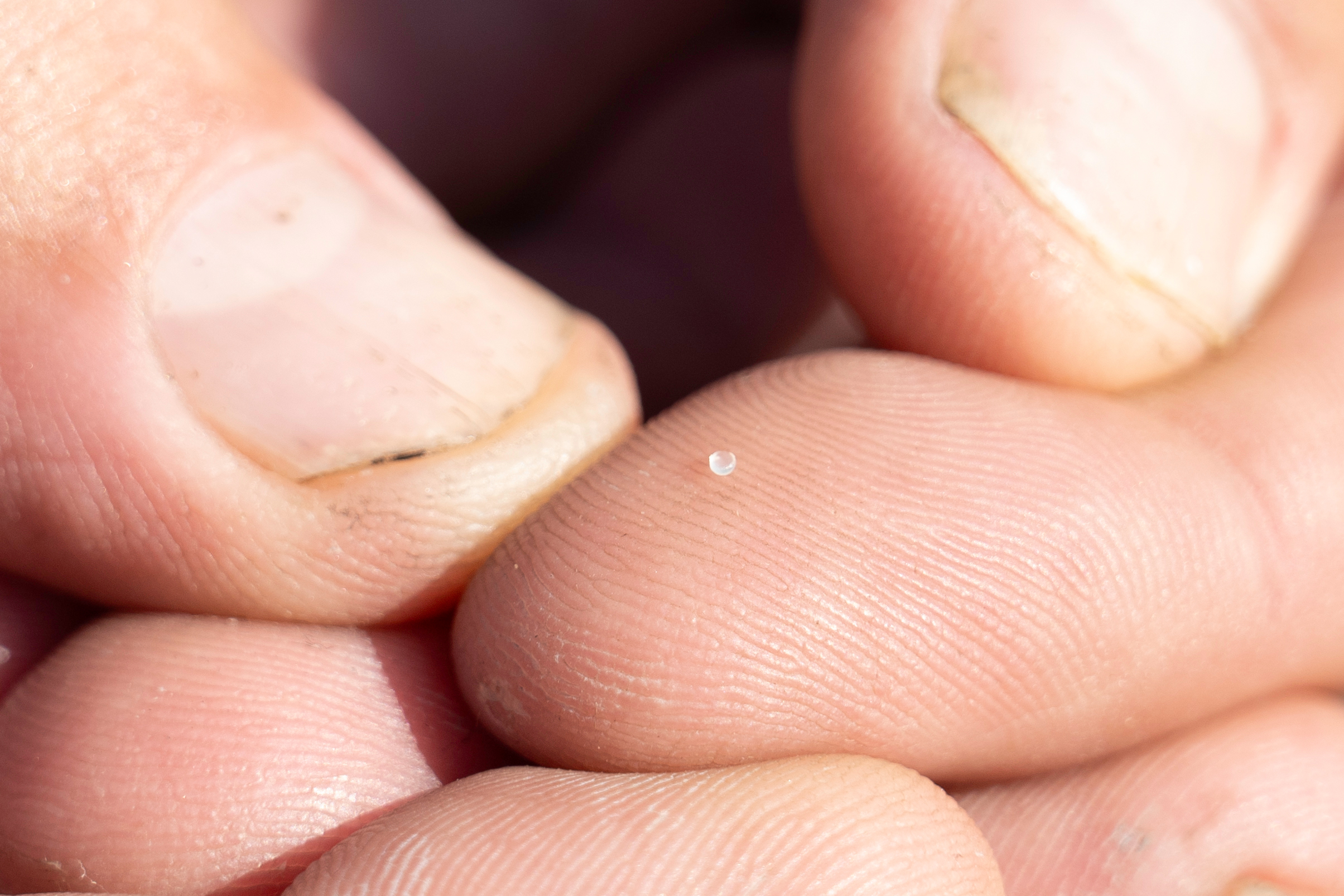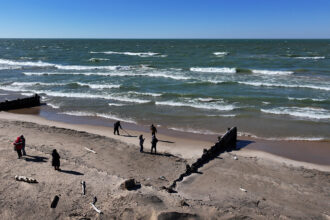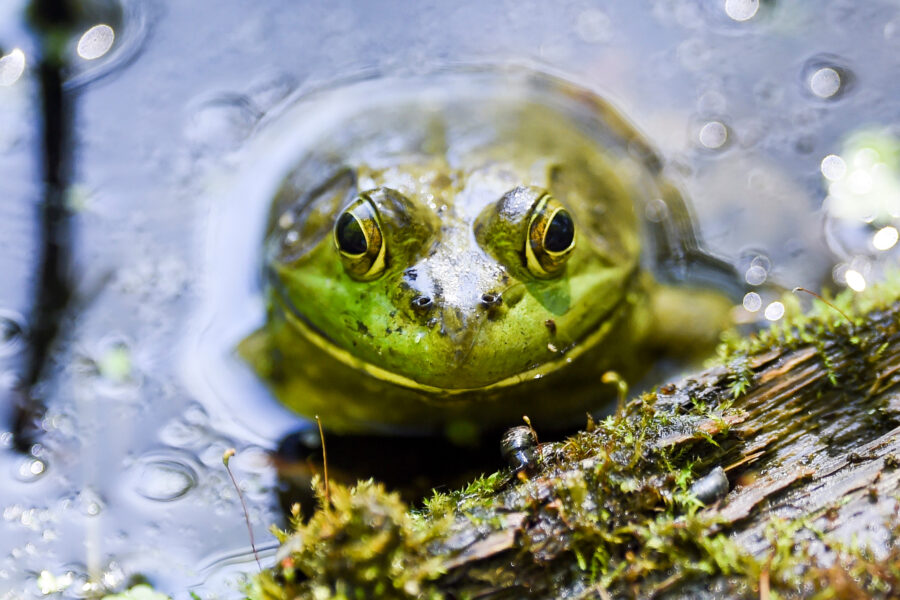A Pennsylvania plastics manufacturer will pay $2.6 million for allegedly violating the federal Clean Water Act and will ensure that no more of its plastic pellets leak into waterways, under a proposed settlement with two environmental groups.
PennEnvironment and Three Rivers Waterkeeper sued Styropek USA, claiming the company discharged large quantities of “nurdles”—tiny pellets used to produce a wide variety of plastic products—into a western Pennsylvania creek, polluting the water and leaving the pellets on creek-side vegetation. Testing by state officials also found that the plastic pollution had increased due to stormwater runoff from the site.
Environmentalists called the agreement, announced Thursday, a landmark that will set a precedent for other plastics manufacturers in Pennsylvania and around the country. It comes amid growing evidence that plastics in general, and nurdles specifically, represent a threat to human health and natural systems.
“It’s a precedent-setting settlement in many ways,” said David Masur, executive director of PennEnvironment, in an interview. “It has one of the largest Clean Water Act citizen-suit penalties in Pennsylvania history but even more important, it includes requirements that should get the facility to move to zero discharge of pellets.”
The plaintiffs were joined in recent weeks by Pennsylvania’s Department of Environmental Protection, which intervened in the case, saying the company violated two state laws in addition to the federal statute.
“Pennsylvanians have a right to a clean and safe environment,” DEP Secretary Jessica Shirley said in a statement. “This consent decree holds Styropek accountable for its violations and ensures they act to stop further unlawful discharges while supporting the cleanup of a treasured creek in Beaver County.”
The company said it welcomed the settlement, which resolves a related notice of violation from the DEP, and added that it is committed to environmental quality. “Styropek is pleased that the parties have reached an agreement that will contribute positively to the Beaver County community,” it said in a statement.
The agreement requires Styropek, which uses nurdles to make polystyrene foam, to install the latest monitoring technology to track whether the pellets leak from its Monaca property. The settlement imposes an automatic penalty if even a single pellet is found outside its plant. The company is also required to redesign its stormwater system so that it captures all pellet waste rather than spreading it into waterways.
For now, because the company idled the plant in March, the settlement applies to flows of stormwater from its 400-acre site. If the plant restarts production or is sold, the requirements would also apply to production.

Steve Miano, an environmental lawyer at Hangley Aronchick Segal Pudlin & Schiller in Philadelphia, who wasn’t involved in the case, said it’s not clear whether the settlement will set a national precedent as the plaintiffs believe, because other plastics cases are pending.
But he called the consent decree “very comprehensive” and said it “could very well” be used as a template for similar cases. “It remains to be seen if the technologies employed … will sufficiently remove the plastics from the discharges,” he wrote in an email. “The [consent decree] seems to require alternative plans if the initial technology is not effective.”
The required use of monitoring technology aims to prevent future nurdle releases because the pellets are virtually impossible to clean up, said Heather Hulton VanTassel, executive director of Three Rivers Waterkeeper.
“The widespread installation of these technologies is the next step to preventing future plastic pollution and protecting our source drinking water,” she said.
The pellets often look like food to many aquatic animals and birds, which eat them. They remain in the stomachs of wildlife, leading to malnutrition and starvation, and sometimes death, Masur said. As they break down and become microplastics, they serve as magnets for harmful chemicals, including carcinogens, neurotoxins and endocrine disruptors, which become more concentrated and toxic as they move up the food chain, with devastating impacts on wildlife and, potentially, human health.
Styropek was chosen for the suit, filed in December 2023, because it had a track record of Clean Water Act violations, Masur said. That’s in contrast to the nearby ethane-cracker plant operated by Shell, although that plant has had a long series of air-quality violations since it opened in 2022.
VanTassel said her group and the Mountain Watershed Association have been watching for nurdle discharges from the Shell plant for the last several years but have not found significant quantities of the pellets from that source. The groups found large nurdle discharges that were traced to Styropek, and that data was used in the suit.
She predicted the settlement will set a national precedent because it’s the first citizen action on plastic pellets to be based on Clean Water Act violations of an inland waterway, and because this is the first time in a citizen lawsuit over nurdles that a state regulator intervened in support of plaintiffs’ claims.
“Our regulators have decided that our agreement to deal with plastic-pellet pollution at the zero-tolerance level is the appropriate way to regulate plastics,” she said.
The agreement is expected to be approved by the federal court for Western Pennsylvania, given that all parties have agreed to it and the judge had been pushing to finalize it, Masur said.
Of the fine, $2 million will support a fund to investigate and clean up pellet pollution in the water, sediment and banks of Raccoon Creek, where the company operates. A further $500,000 will create a fund to support efforts to protect water quality in the creek and nearby areas of the Ohio River watershed. The company agreed to pay another $100,000 in civil penalties to a clean water fund operated by the state.
About This Story
Perhaps you noticed: This story, like all the news we publish, is free to read. That’s because Inside Climate News is a 501c3 nonprofit organization. We do not charge a subscription fee, lock our news behind a paywall, or clutter our website with ads. We make our news on climate and the environment freely available to you and anyone who wants it.
That’s not all. We also share our news for free with scores of other media organizations around the country. Many of them can’t afford to do environmental journalism of their own. We’ve built bureaus from coast to coast to report local stories, collaborate with local newsrooms and co-publish articles so that this vital work is shared as widely as possible.
Two of us launched ICN in 2007. Six years later we earned a Pulitzer Prize for National Reporting, and now we run the oldest and largest dedicated climate newsroom in the nation. We tell the story in all its complexity. We hold polluters accountable. We expose environmental injustice. We debunk misinformation. We scrutinize solutions and inspire action.
Donations from readers like you fund every aspect of what we do. If you don’t already, will you support our ongoing work, our reporting on the biggest crisis facing our planet, and help us reach even more readers in more places?
Please take a moment to make a tax-deductible donation. Every one of them makes a difference.
Thank you,











